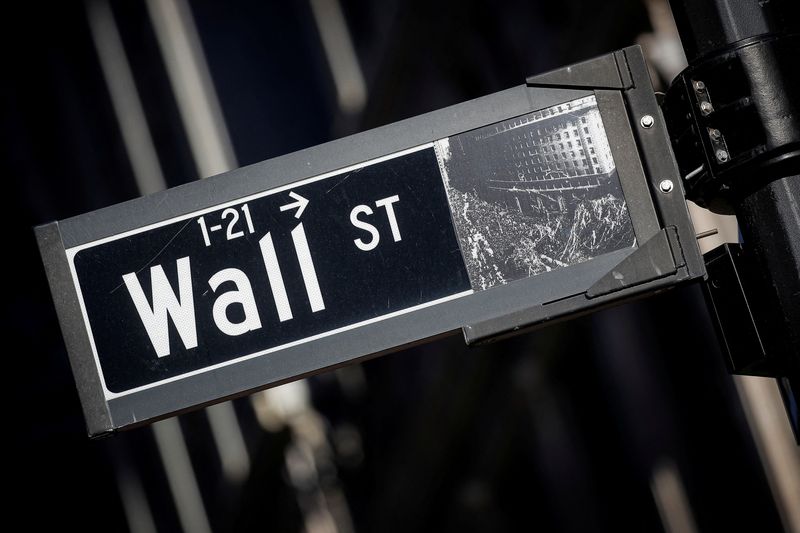By Caroline Valetkevitch
NEW YORK (Reuters) - U.S. stocks ended sharply lower for the day and week on Friday as investors worried about more interest rate hikes and the Israel-Hamas conflict spreading.
The S&P 500 and Nasdaq fell more than 1% each. All of the S&P 500 index's 11 sectors ended lower in broad-based selling, with technology and financials among the biggest drags.
Israel leveled a northern Gaza district as its conflict with Hamas intensified. The latest outbreak of violence began Oct. 7 with attacks by Hamas militants.
"Geopolitically, with the weekend, investors are going to be cautious and taking money off of the table," said Alan Lancz, president of Alan B. Lancz & Associates Inc, an investment advisory firm in Toledo, Ohio.
The S&P 500 financial index was down 1.6% while the KBW regional banking index fell 3.5%. Shares of Regions Financial (NYSE:RF) slid 12.4% after its profit missed analysts' average estimate.
"That whole sector is under a cloud, with higher rates. We might not have that soft landing and that's going to hurt," Lancz said.
The benchmark 10-year Treasury yield eased on Friday, a day after crossing 5% for the first time since July 2007 in the wake of comments by Federal Reserve Chair Jerome Powell. He said the U.S. economy's strength and tight labor markets could require tougher borrowing conditions to control inflation.
The Dow Jones Industrial Average fell 286.89 points, or 0.86%, to 33,127.28, the S&P 500 lost 53.84 points, or 1.26%, to 4,224.16 and the Nasdaq Composite dropped 202.37 points, or 1.53%, to 12,983.81.
For the week, the Dow was down 1.6%, the S&P 500 fell 2.4% and the Nasdaq slid 3.2%.
The Cboe Volatility index closed at its highest level since March 24.
SolarEdge shares slumped 27.3% after it warned of significantly lower revenue in the fourth quarter.
Shares of credit card company American Express (NYSE:AXP) fell 5.4% even though its third-quarter profit beat expectations.
The third-quarter U.S. earnings season is well under way, with 86 companies in the S&P 500 having reported. Results from some mid-sized banks have raised concerns that the boost to lenders from the Fed's interest rate hikes was tapering off.
Volume on U.S. exchanges was 11.05 billion shares, compared with the 10.58 billion average for the full session over the last 20 trading days.

Declining issues outnumbered advancers on the NYSE by a 2.63-to-1 ratio; on Nasdaq, a 2.28-to-1 ratio favored decliners.
The S&P 500 posted no new 52-week highs and 38 new lows; the Nasdaq Composite recorded nine new highs and 420 new lows.